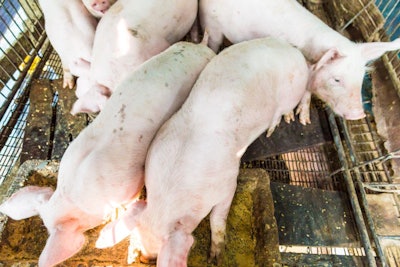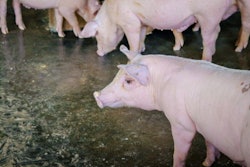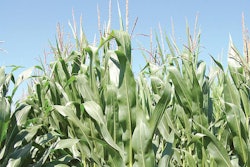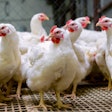
African countries registering new outbreaks of African swine fever include South Africa, Nigeria and Uganda; meanwhile, Mexico is seeking international collaboration to protect the pork sector across the Americas from the virus.
Since the last days of June, South Africa’s veterinary authority has officially registered three new African swine fever (ASF) outbreaks.
Based on notifications to World Organisation for Animal Health (WOAH), they bring the nation’s total over the past three years to 165 confirmed ASF outbreaks. Directly impacted have been just over 63,000 pigs. All these outbreaks have occurred outside the South African ASF control area, according to the animal health agency.
Of the recently reported outbreaks, one started on April 20. At a farm in the Eastern Cape, all but one of the 85 pigs died. It was the first reported outbreak in this region since November last year, and brings the total there to 17.
In mid-May, half of the pigs at a small farm in Free State died in a separate outbreak series. At the end of June, ASF virus was detected in a village herd of 1,500 pigs in a different district in the same province.
Currently, 104 ASF outbreaks have been reported to WOAH in this outbreak series since April 2019. Included are cases across several provinces, including Mpumalanga, Gauteng and North West, as well as Free State.
In Western Cape, no new ASF outbreaks have been reported to WOAH. The most recent cases were confirmed one month ago.
Central Nigerian farmers call for government support for ASF
In the state of Plateau, pig farmers are in despair over the rapid spread of ASF, reported Leadership at the end of June.
Affecting even commercial herds, the disease is causing widespread morbidity and mortality in pigs every day. Owners are reporting that the infection is spreading in the state of Plateau — even with enhanced biosecurity in place and in pigs bred for increased disease resilience.
With the animals often dying suddenly, a senior agriculture official in the state has confirmed that the cause of death is ASF.
As the virus circulates, some pig owners are selling their animals cheaply while they remain healthy. Because of these low prices, one farmer has called on the government for financial support for his business.
ASF suspected again in East Africa
Around one month ago, dozens of pigs died in northern Uganda. According to Uganda Radio Network, cause of the mortalities was suspected to be ASF. In one parish alone in the district of Amuru, more than 50 animals were found dead after exhibiting typical symptoms of the disease in May.
Previously, it had reported in February that hundreds of pigs in Otuke had died. Occurring over a period of approximately three weeks, ASF was thought to be the cause of death. Also located in the Northern Region, Otuke does not adjoin Amuru.
In the far northwest of Uganda in Arua district, 300 pigs died this year. At the time, the Network reported the source of the infection as animals brought to market from the Democratic Republic of Congo, which borders Arua. In order to prevent the spread of infection, a senior veterinary official for Greater Arua banned movements across the international border, and restricted movements of the animals within that region of Uganda. Among the measures put in place were animal checkpoints on major roads, and nighttime patrols of the border.
In January, ASF was confirmed as the reason for the devastation of three pig farms further south in Uganda. These were located in the Masaka district, according to the same source. Situated in Uganda’s Central Region, Masaka lies on Lake Victoria.
In 2021, there were two confirmed ASF outbreaks in Uganda, according to the United Nations’ Food and Agriculture Organization.
Between 700 and 1,200 pigs were thought to have died of ASF in Otuke, reported Daily Monitor in January 2021.
This year, reemergence of ASF was reported in Zambia, another East Africa state.
ASF developments in the Caribbean
In April 2021, ASF was detected for the first time in 40 years in the Dominican Republic. Within a few months, cases were also reported the neighboring state in the island of Hispaniola — Haiti.
Even though it has not spread outside these two states, presence of the ASF virus in the Caribbean is seen as a potential threat to the pork sector across the Americas.
Last week, Rezo Nodwes reported that the government of Mexico is planning a technical-scientific cooperation plan to support Haiti’s ASF control efforts. The agriculture secretary is seeking the cooperation of the U.S. and the Dominican Republic in this initiative.
Welcoming the move was the head of the Haitian embassy in Mexico. Pork production is a pillar of his country’s economy, he said.
In Haiti, local media put the number of ASF outbreaks at 34 in February, with cases in seven of the country’s 10 departments.
Meanwhile, 224 outbreaks have been confirmed with WOAH in the Dominican Republic. As well as backyard herds, the virus has been detected at 10 commercial pig units. The most recent outbreak reported to WOAH was in early January.
In May, the government of Barbados put in place measures to protect its pork sector from the entry of the ASF virus.
View our continuing coverage of the global African swine fever situation.

















